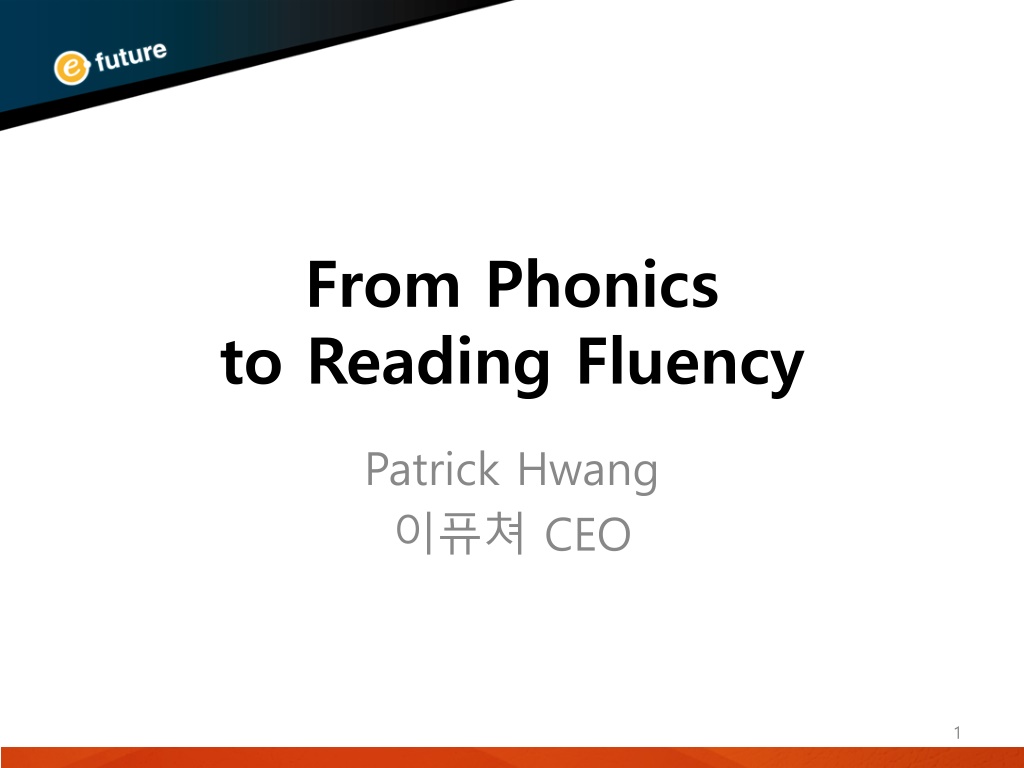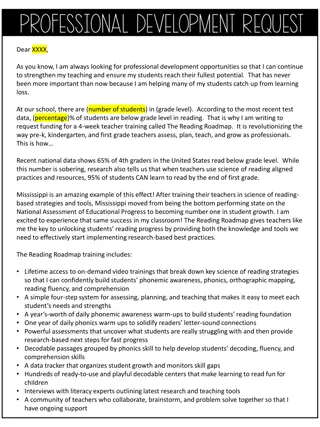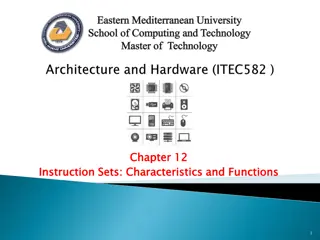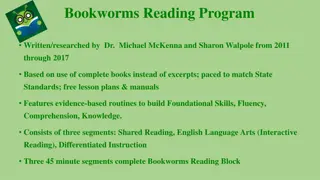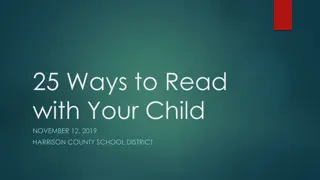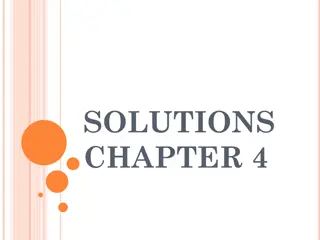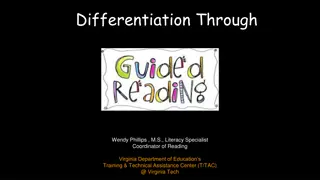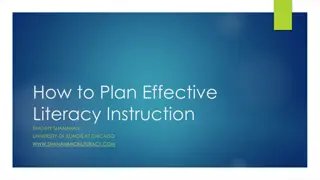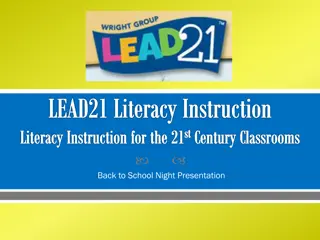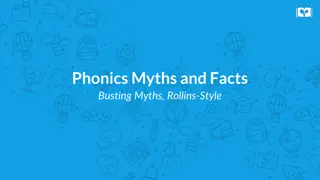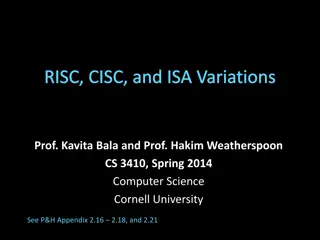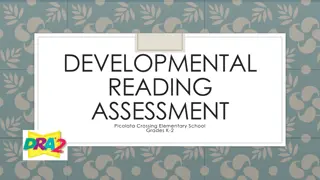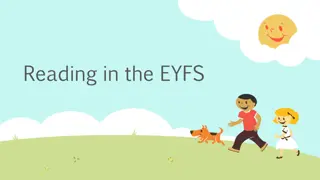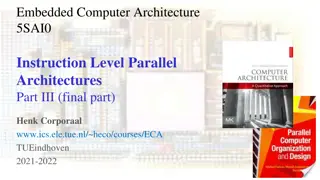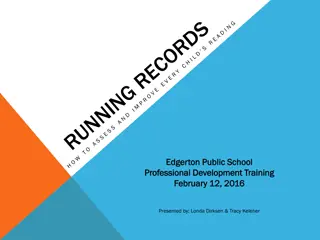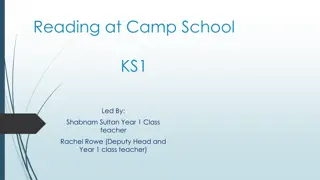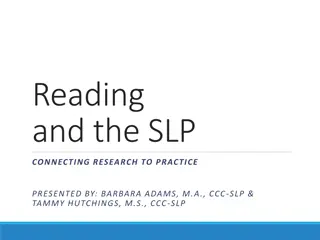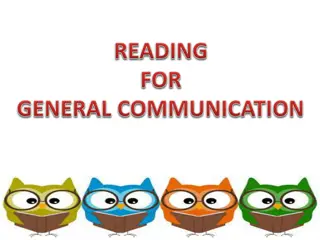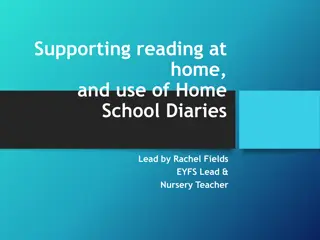Understanding Essential Components of Reading Instruction
Explore the five crucial components of reading instruction outlined by the National Reading Panel and delve into the concepts of phonemic awareness, phonics, fluency, vocabulary, and text comprehension. Gain insights into the importance of incorporating these components in a structured manner to enhance reading abilities and promote comprehension. Additionally, learn about the broader concept of fluency and its role in word recognition and comprehension processes.
Download Presentation

Please find below an Image/Link to download the presentation.
The content on the website is provided AS IS for your information and personal use only. It may not be sold, licensed, or shared on other websites without obtaining consent from the author. Download presentation by click this link. If you encounter any issues during the download, it is possible that the publisher has removed the file from their server.
E N D
Presentation Transcript
From Phonics to Reading Fluency Patrick Hwang CEO 1
NRP(National Reading Panel) The National Reading Panel suggested five crucial components of reading instruction that need to be delivered in an explicit and organized way. These components are: 2
5 Components of Reading (Comprehensive Literacy Instruction) Phonemic awareness (PA) an awareness of and the ability to manipulate the individual sounds (phonemes) in spoken words; Phonics (P) the study and use of sound/spelling correspondences and syllable patterns to help students read written words; Fluency (F) reading text with sufficient speed, accuracy and expression to support comprehension; Vocabulary (V) Text comprehension (TC) (National Reading Panel Report, 2000) 3
Greetings https://www.youtube.com/watch?v=Id67TMSKOzs 5
44 phonemes in English New Zealand New Zea land (syllables) N ew z ea l a n d (8) l - - (9) 6
b c k d f g a e i o h j l m n u ai ee oa oo oo ie ie p qu r s t oi ow ar or v w x y z er ir ur ure ch sh th th ng pure the 7
Phoneme: toy : boy : t + oy (2) b + - - + + + (4) 8
Phonemic Awareness Phoneme: smallest unit of speech 44 sounds in English cat: c a t toy: t oy 9
Fluency Reading fluency is the ability to automatically retrieve the meaning of the words you read. 10
Broader Concept of Fluency Ability to group words appropriately into meaningful grammatical units for interpretation (Schreiber, 1980, 1987) Conceptualizations of fluency have been extended beyond word recognition and may embrace comprehension processes as well (Thurlow & van den Broek, 1997) (National Reading Panel Report, 2000) 11
5 Components of Reading (Comprehensive Literacy Instruction) Phonemic awareness (PA) an awareness of and the ability to manipulate the individual sounds (phonemes) in spoken words; Phonics (P) the study and use of sound/spelling correspondences and syllable patterns to help students read written words; Fluency (F) reading text with sufficient speed, accuracy and expression to support comprehension; Vocabulary (V) Text comprehension (TC) (National Reading Panel Report, 2000) 12
Vocabulary Vocabulary is commonly defined as "all the words known and used by a particular person Productive & receptive knowledge Degree of knowledge 13
Text Comprehension The reality of disruption and the inevitability of the impact it will have on us does not mean that we are powerless in the face of it. It is our responsibility to ensure that we establish a set of common values to drive policy choices and to enact the changes that will make the fourth industrial revolution an opportunity for all. 14
How about this one? The reality of disruption and the inevitability of the impact it will have on us does not mean that we are powerless in the face of it. It is our responsibility to ensure that we establish a set of common values to drive policy choices and to enact the changes that will make the fourth industrial revolution an opportunity for all. Background knowledge Vocabulary Fluency Guessing meaning Predicting, evaluation . 15
NRP 5 Components of Reading Comprehension Vocabulary Fluency Phonics P. A. 16
Fluency in anything can be achieved only by extensive exposure and practice. 17
Thank you. 18
Degree of knowledge 1. Never encountered the word. 2. Heard the word, but cannot define it. 3. Recognize the word due to context or tone of voice. 4. Able to use the word and understand the general and/or intended meaning, but cannot clearly explain it. 5. Fluent with the word its use and definition. *Extensive Reading - Repeated encounter with words in various contexts slide 13 19
